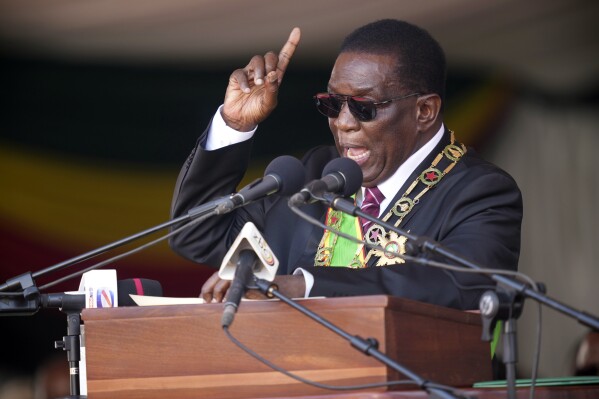Nigerian workers walk off the job again to protest rising costs after gas subsidies are removed
ABUJA, Nigeria (AP) — Workers from all sectors in Nigeria walked off their jobs on Tuesday to protest the growing cost of living caused by the government’s removal of gas subsidies, threatening to “shut down” Africa’s largest economy if their demands for improved welfare are not met.
The Nigeria Labor Congress workers association began a two-day “warning strike” on Tuesday, their second in over a month. They met last week and complained that the decision of Nigeria’s President Bola Tinubu to remove gas subsidies has “unleashed massive suffering on Nigerian workers and masses.”
Last-minute efforts to avert the strike failed on Monday evening after the labor unions’ leaders shunned a meeting called by the Labor Ministry. Drawn from all sectors including health and electricity, the workers’ strike is expected to disrupt activities in many offices, further hurting Africa’s largest economy whose growth has been slowed by declining government revenues and oil theft.
The president of the labor association, Joe Ajaero, said there would be a “total and indefinite shutdown of the nation” in two weeks unless the government fulfills the workers’ demands including an increase of wages.
 Taiwan’s President Tsai begins visit to remaining ally Eswatini in southern Africa
Taiwan’s President Tsai begins visit to remaining ally Eswatini in southern Africa
 Zimbabwean president at his inauguration says the disputed election reveals a ‘mature democracy’
Zimbabwean president at his inauguration says the disputed election reveals a ‘mature democracy’
 Gabon’s military leader is sworn in as head of state after ousting the president last week
Gabon’s military leader is sworn in as head of state after ousting the president last week
Sworn in as president in May, Tinubu’s bid to revamp Nigeria’s economy has led him to introduce some bold measures, which he said would save more money, strengthen the naira currency and attract investors. But those steps also caused hardship for millions in the country with critics accusing Tinubu of not acting fast to cushion the effects of his policies.
After he ended the yearslong subsidies for gas on his first day in office, the price of petrol more than doubled, resulting in a similar hike in the price of other commodities. The government’s devaluation of the currency further increased the prices including foodstuff.
Tinubu’s administration has taken several steps to alleviate the hardship, including a $5.5 million package comprising as both loan and grant to states. But the workers have said such steps are not enough with their wages still the same.
Many workers are no longer able to pay for transport to work, Ajaero said, speaking of the “excruciating mass suffering and the impoverishment experienced around the country.”
The government, meanwhile, said a strike would worsen the condition of Nigerians and requested more time to find ways to resolve the dispute. “We cannot do this in an atmosphere devoid of industrial peace,” Labor Minister Simon Lalong said.
Disclaimer: The copyright of this article belongs to the original author. Reposting this article is solely for the purpose of information dissemination and does not constitute any investment advice. If there is any infringement, please contact us immediately. We will make corrections or deletions as necessary. Thank you.





